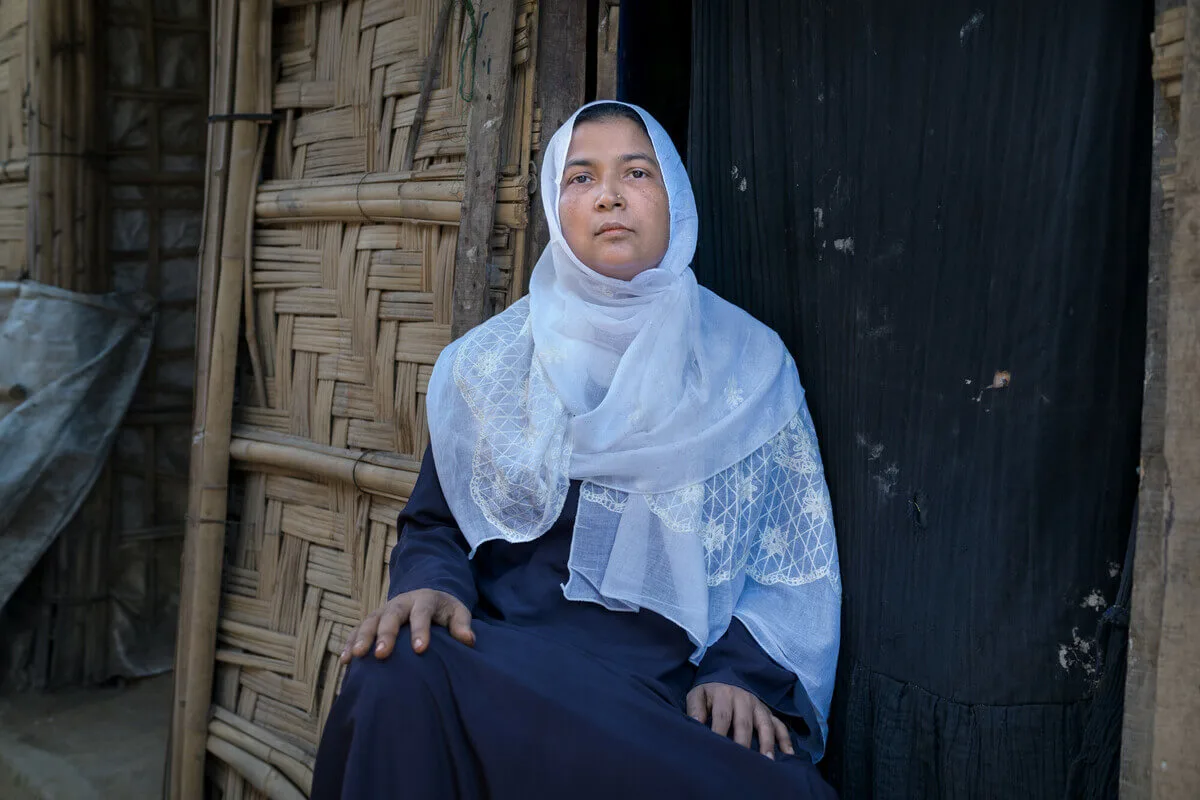Rohingya Refugee Crisis in Bangladesh
In 2017, around 750,000 Rohingya people fled violence in Myanmar to seek refuge across the border in Bangladesh. They joined more than 300,000 others who fled previous bouts of violence since the 1990s and were already living in cramped and makeshift camps. This brings the total refugee population to more than a million. Thousands more have recently crossed the border, escaping civil war and persecution.
Many have arrived with just the clothes on their backs — they need food, clean water and shelter to survive, but above all they need to feel safe. People are still living in flimsy shelters made of bamboo and tarpaulin built on hilly floodplains in overcrowded settlements. Offering little protection, these shelters become flooded during monsoon rains and are damaged or destroyed by strong winds, cyclones and landslides.
Conditions in the camps are woefully inadequate, with overflowing latrines and contaminated water. They’re largely unlit and dangerous at night — women, girls and children are particularly at risk of abuse, exploitation and trafficking.
Oxfam’s work
Oxfam has provided vital aid including clean water and food security for Rohingya refugees and continues to work in the community to support their safety and wellbeing. So far, we have:
- Helped people stay healthy and hygienic by providing clean water, distributing soap and other essentials, and working with community-based volunteers to emphasise the importance of good hygiene.
- Prevented water-borne disease and environmental contamination through building three faecal sludge treatment plants that safely process waste for around 480,000 people.
- Installed solar-powered lights around the camps and provided torches and portable solar lanterns so that refugees — especially women — feel safer leaving their shelters after dark to reach water points and toilets.
- Supported women, people with disabilities and other at-risk households to grow nutritious food through vertical and homestead gardens, which is improving their families’ food security and enabling income generation.
Help Rohingya women
Cox’s Bazar in Bangladesh is the largest refugee camp in the world. And since Dil and her family were forced to flee Myanmar, it’s been their home.
The camp is overcrowded and poorly lit, with overflowing toilets and contaminated water. A lack of access to clean water has led to an increase in waterborne diseases, and sourcing clean water after dark puts women like Dil in danger of physical and sexual violence.
By donating today, you can help provide women like Dil with safe access to the clean water they urgently need for life, health, dignity and a more secure future. Will you help?

